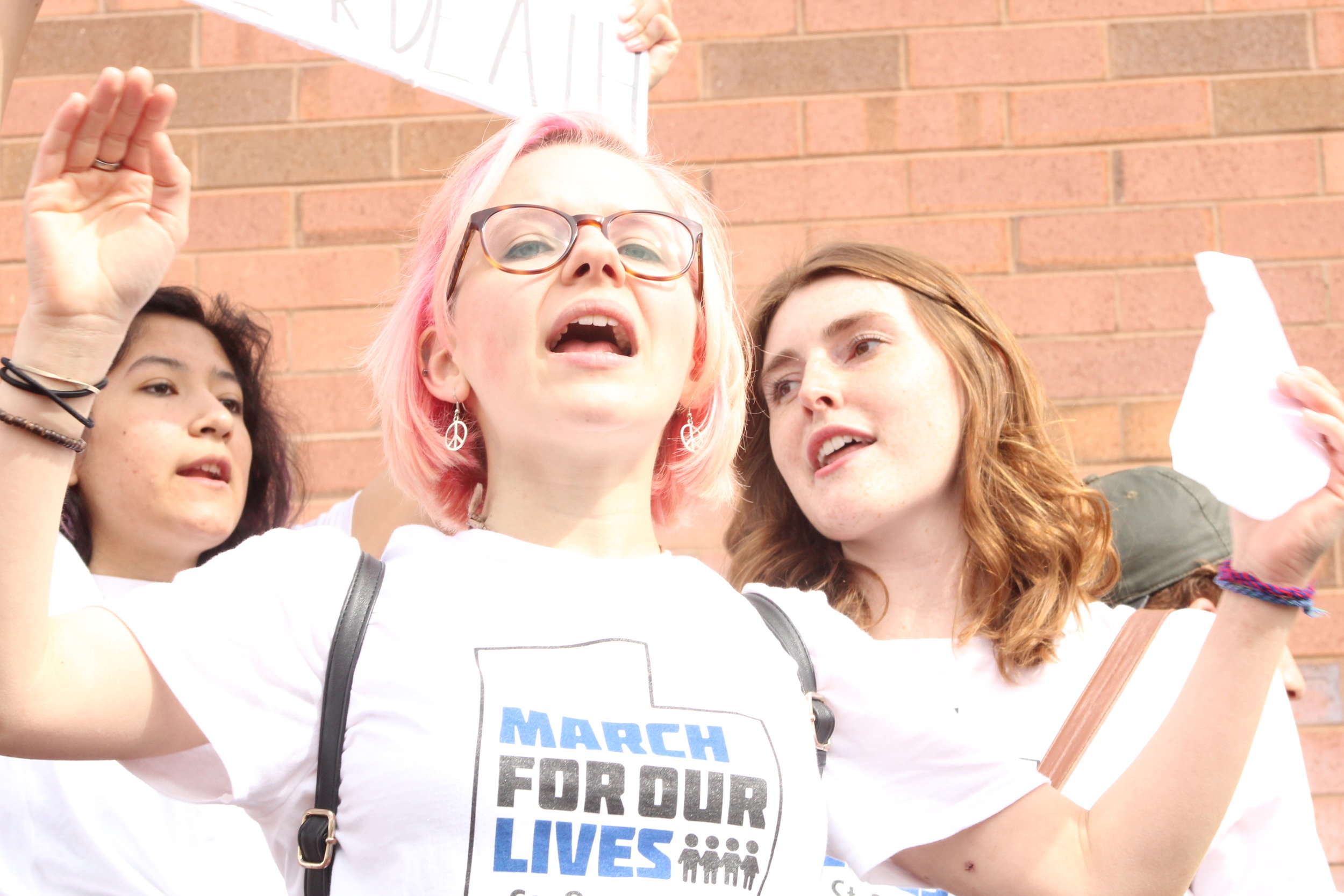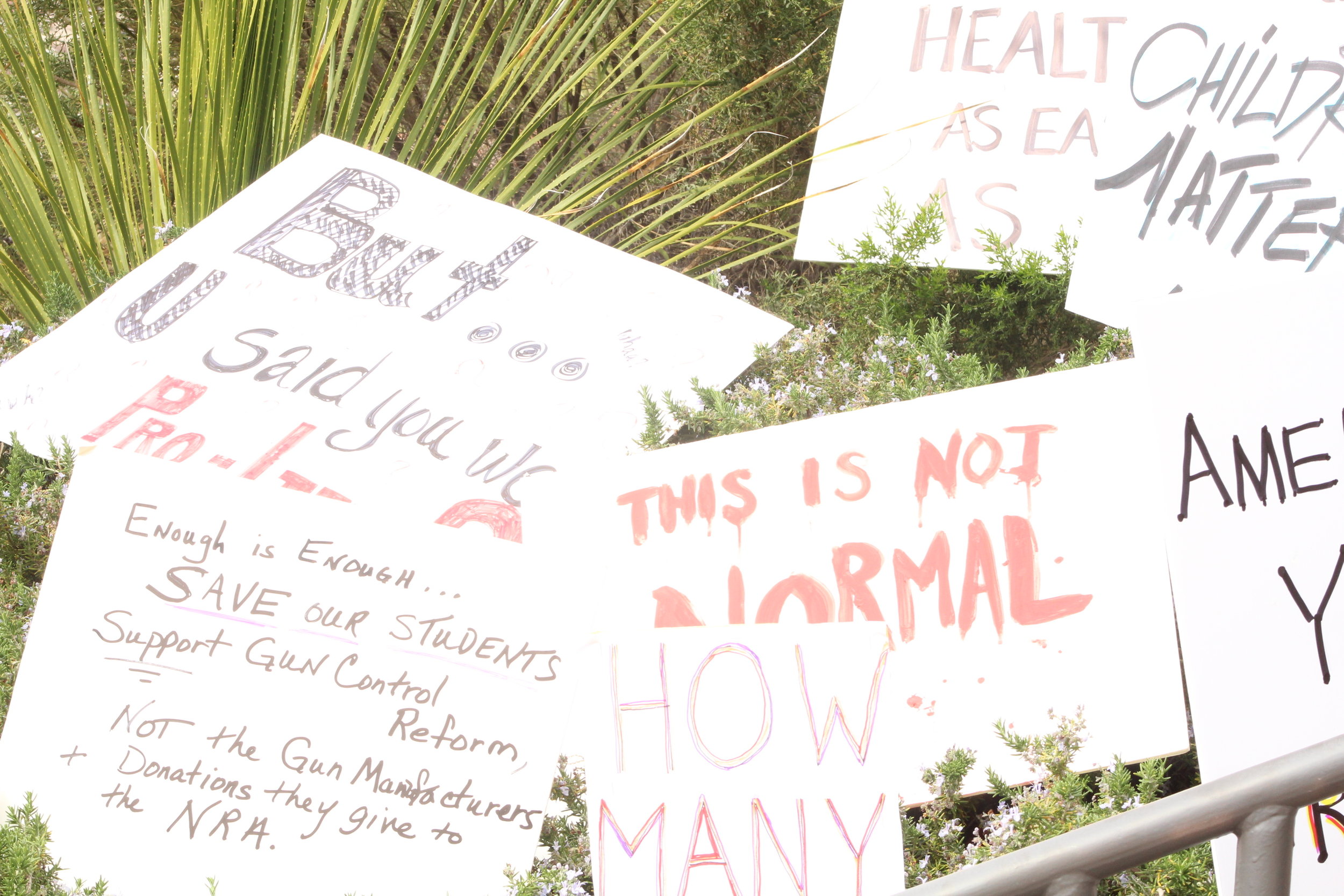Classrooms Without Borders
Engaging students and community across state, regional, national and cultural lines in meaningful civic discourse, through the study, witness, and making of theatre.
A democracy is more than a form of government; it is primarily a form of associated living, of conjoint communicated experiences.
- John Dewey. “Democracy and Education,” 1916
The Project
In the midst of the divisive 2016 US presidential election, a trio of theatre-artists/scholars/educators - Dr. Kathryn Mederos Syssoyeva of Utah’s Dixie State University (St. George, UT), Dr. Jessica Brater of Montclair State University (Montclair, NJ), and Dr. Rachel Anderson-Rabern of Franklin and Marshall College (Lancaster, PA) - came together to create an experimental project of theatre education as democratic practice. Our aim was to engage students and community, across state, regional and cultural lines, in meaningful civic discourse - through the study, witness, and making of theatre.
We began with a set of premises and concerns:
That in the face of increasing globalization we here in the US are witnessing a paradoxical wave of social fragmentation -
that this fragmentation may be “mapped” along geographies of region, culture, ideological and identity affiliation, and internet use -
and that this fragmentation has given rise to a crisis of civic discourse –
“Classrooms Without Borders” was our response to these concerns. For our inaugural project, we created a shared syllabus of plays and contextual readings built around the questions:
How does theatre respond to moments of political crisis, social upheaval, or social change?
How might the teaching, making, and sharing of theatre reinvest in the idealized dream of theatre’s civic function: investigation into, expression of, and provocation to democratic discourse - robust, polyphonic, fearless, civil?
Our aim was to teach this co-conceived material in our respective (demographically and geographically distinct) institutions, through three primary methods of reading and discussion:
Among students within individual institutions
Among students and their surrounding communities through monthly public readings and other outreach activities
Among students across institutions, via video conferencing.
2016: Students from the Department of Theatre at Dixie State University, Utah, meet with students from Montclair State, New Jersey, to discuss and prepare a public reading of Naomi Iuzuka’s migration drama, Anon(ymous).
2017: Dixie/Montclair
The inaugural course (which at Dixie State we called “Theatre and Society”) launched in Spring of 2017, with Dr. Brater and Dr. Syssoyeva’s students participating; plays for that semester included:
Antigone (Sophocles)
The Antigone of Brecht (Bertolt Brecht, translation by Judith Malina)
Ubu Roi (Alfred Jarry)
Zoot Suit (Luiz Valdez)
Venus (Suzan-Lori Parks)
Scorched (Wajdi Mouwawad)
Anon(ymous) (Naomi Iizuma)
Public staged readings and community discussion were conducted in both New Jersey and Utah of Ubu Roi, the Brecht/Malina Antigone, Venus, and Iizuma’s Anon(ymous).
Staged reading of Sweat, by Lynn Nottage. Performed by students of Dixie State University in collaboration with community members; followed by an audience-performer talk-back. Kayenta Center for the Arts, Ivins Utah.
Following each public reading, students from Montclair State and Dixie State gathered virtually via Skype. The combined seminar study and community performance work created a shared set of experiences and ideas which formed the basis of these virtual seminars.
The semester culminated with Dixie State University students traveling to New York and New Jersey, for an in-person gathering at Monclair State, where the two groups worked together to stage our final public reading for the semester, Iizuma’s Anon(ymous). Dixie State students additionally received a tour of the Public Theatre with a lecture on the site’s history of social engagement, from the building’s founding as a public library, through the establishment of the Hebrew Immigrant Aid Society, to its current function as a theatre striving toward “radical inclusivity.” DSU students also saw performances of contemporary drama, including Lynn Nottage’s Sweat and Rebecca Taichmann and Paula Vogel’s Indecent.
2017/18: Us. Here. Now.
The cast of Art from the Beloved Countries, 2018 - a celebration of African and Afro-Caribbean literature, art, dance and music, collaboratively created and performed by Nigerian and American students of Dixie State University, co-directed by DSU theatre student Abby Taylor and Kathryn Mederos Syssoyeva within the framework of Us. Here. Now. The New World Drama Series. The event - part celebration, part fundraiser for KIND, and part response to the President’s remarks of January 12, 2018 concerning the plight of refugees from Haiti, El Salvador, and Africa - was performed for community members at the Kayenta Center for the Arts, in Ivins, Utah, and culminated with audience-performer talk back about cultural challenges and personal hardships faced by DSU’s Nigerian exchange students.
At Dixie State University in 2018, Classrooms Without Borders spawned “Us. Here. Now. The New World Drama Series”: public staged readings and workshop performances, introducing students and community to the kind of socially engaged contemporary drama (including recent work by Caryl Churchill, Charles Mee, Lynn Nottage, and Branden Jacobs-Jenkins, among others) rarely performed in our region. Performed by a combined cast of professionals and theatre students under the direction of Dr. Syssoyeva, the series was hosted by the Center for the Arts in Kayenta, Utah; all performances concluded with a performer-audience discussion of the issues raised by the drama.
It also led to a revised version of the previous year’s course, “Theatre and Society,” with a second trip to New York, and a significant rethink of that semester’s syllabus. The 2018 course began as a reading-based seminar on the history and practice of theatre for social justice; but in the wake of the Parkland shootings members of the class asked for a shift in focus, and the class collectively agreed to take the issue of gun violence and gun law as our topic for the remainder of the semester. In this broadly pro-2nd amendment region of the country, this fraught topic forced students to devise discussion strategies emphasizing mutual respect, attentiveness and measured honesty. Their class time shifted to a study of state and federal gun policies and how these intersect (as well as divergent policies in states contiguous to Utah), and a consideration of alternative legal models in other states. Speakers representing diverging perspectives were invited to class to explain their views, including local law enforcement, an FBI agent, and representatives of the campus Veterans Association. A subgroup within the class formulated a public statement calling for a change in Utah gun laws, and organized a peaceful march and rally, in the City of St. George, calling for “Sane Gun Policy.” Over a thousand community members attended the rally
“Theatre & Society” students take it to the streets. St. George, Utah, spring 2018.
2018: La Frontera/The Border
Dixie State University Theatre Students improvise around themes of border crossing, resistance, and compassion with Dance Students in Pepe Rojo’s Aesthetics class at Centro Estatal de las Artes Tijuana. Tijuana, Mexico.
At Dixie State University in the autumn of 2018, we built upon the models created in the previous years to create La Frontera/The Border (follow this link to the project page), a music-driven, multi-media, verbatim-text docudrama bearing witness to the impact of Zero Tolerance immigration policy on communities and individuals on the US-Mexico border. The project launched in September 2018 with a team of theatre and film students, from Dixie State University in Southwest Utah, traveling by van to the San Ysidro border to conduct field research in Tijuana and San Diego, and engage in collaborative art making and dance-theatre based improvisation with students and in Tijuana.. Our work culminated in October with two performances at Dixie State University, followed by intense talk-backs with audience.
Students at Dixie State University engage in a collective art-making project at Pasaja Rodriguez, in Tijuana, Mexico under the direction artist-activists and communications scholars Pepe Rojo and Grant Leuning.
Project Statement
(2016)








